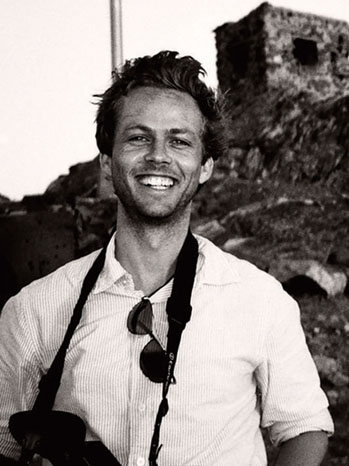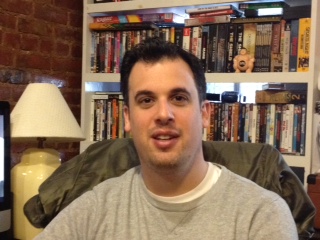|
|
||
|
Pro Tools
FILMFESTIVALS | 24/7 world wide coverageWelcome ! Enjoy the best of both worlds: Film & Festival News, exploring the best of the film festivals community. Launched in 1995, relentlessly connecting films to festivals, documenting and promoting festivals worldwide. Working on an upgrade soon. For collaboration, editorial contributions, or publicity, please send us an email here. User login |
Tribeca Film Festival 2016 - "Mother" interview with the filmmakersThis darkly comic crime mystery set in small-town Estonia centers on Elsa, the mother and full time caretaker of Lauri, a teacher who has been in a coma since being shot under shadowy circumstances. Attentive in her duties but at the end of her tether, Elsa receives Lauri’s visitors—friends, students, his girlfriend, his boss, and others—who come to update the unconscious Lauri on their lives and unburden themselves of their troubles. But as the police inquiry into the crime progresses, some of his closest ties are called into question. 'Mother" premiered internationally at 2016 Tribeca Film Festival. We sat down with the female-driven filmmakers: director Kadri Kõusaar, co-writer Leana Jalukse, and producer Aet Laigu, on their inspirations and origins of the film, challenges in filmmaking, advice to other women filmmakers and more.
Kadri, you have been writing and in the media since you were thirteen years old. What made you decide to take on this project as a director? How did you get the inspiration for this film? This is an all-female production team. Not very common in the film industry. Was it challenging? EWA (European Women’s Audiovisual Network) published a research they made over the years of how many women go to film school (which was more than 40%), how many films are made by women and why do they disappear in between. A big thing was that they just don’t get the funding. When asked why would you hire a man in the TV Company as a director, the answer was because women are too bossy. Kadri: When I was touring, traveling with my other film years ago, that was playing in festivals, it was very rare to see other women. It has something to do with biology too. When you’re raising children, or giving birth, that can be a challenge. Also a single mother, you don’t have that financial support. But I do think it is getting better.
How did you find the main actress Tiina Mälberg? Any advice for other women filmmakers? Kadri: Open your souls. Aet: As a producer I’m interested in making films about women because I am one. If I would advise anything it would be to do things that you know about, then you can give the most and it will help you along. If I want to make a film about a man, I would definitely need to get a man on board to write the script. It works both ways. -- Interview by L. Fietz
26.04.2016 | Tribeca Film Festival's blog Cat. :
|
LinksThe Bulletin Board > The Bulletin Board Blog Following News Interview with EFM (Berlin) Director
Interview with IFTA Chairman (AFM)
Interview with Cannes Marche du Film Director
Filmfestivals.com dailies live coverage from > Live from India
Useful links for the indies: > Big files transfer
+ SUBSCRIBE to the weekly Newsletter Deals+ Special offers and discounts from filmfestivals.com Selected fun offers
> Bonus Casino
User imagesAbout Tribeca Film Festival Online Dailies Coverage of the Tribeca Film Festival, April 17-28, 2013
The Tribeca Film Festival brings together local, national, and international talent to provide the New York City, downtown community with five days of screenings, educational workshops, and various special events.
View my profile Send me a message My festivalThe EditorUser links |






























